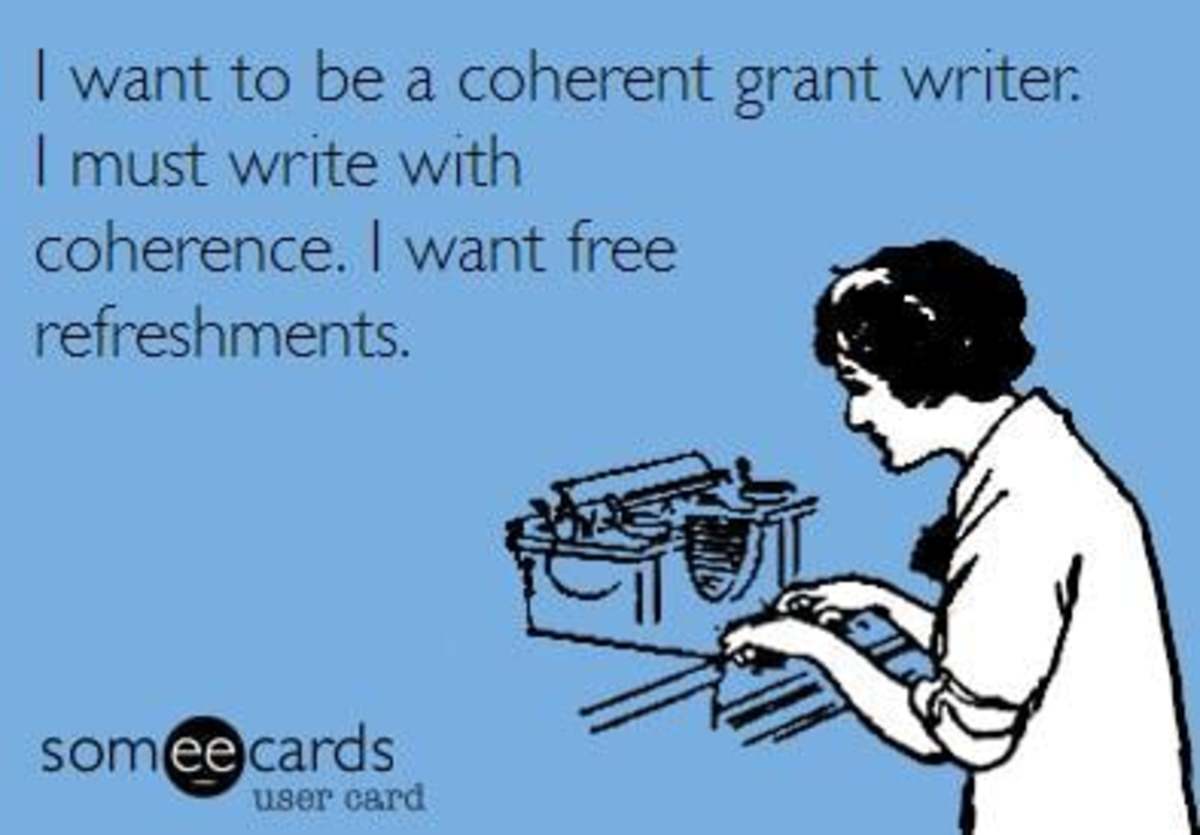- HubPages»
- Books, Literature, and Writing»
- How to Write»
- How to Get Published
Good Grabber Sentences that Pull Readers into Your Novels and Short Stories

First impressions are lasting impressions, and as a writer, you rarely get a second chance to make one, especially when you write short stories and novels for a reading public that wants to be impressed immediately.
We as writers in the twenty-first century have to be honest with ourselves—modern readers are an impatient breed. Not only do we have to pull them in and grab them with our very first sentence, but we also have to hold their attention throughout. Without a good first “grabber” sentence, however, a writer may be holding nothing but air.
Classic Grabbers
These famous literary grabbers are from classic works of literature. Each first sentence pulls the reader into the story, and each first sentence won’t let the reader go.
- “During the whole of a dull, dark, and soundless day in the autumn of the year, when the clouds hung oppressively low in the heavens, I had been passing alone, on horseback, through a singularly dreary tract of country, and at length found myself, as the shades of the evening drew on, within view of the melancholy House of Usher.” (from “The Fall of the House of Usher” by Edgar Allan Poe)
- “Emma Woodhouse, handsome, cleaver, and rich, with a comfortable home and happy disposition, seemed to unite some of the best blessings of existence; and had lived nearly twenty-one years in the world with very little to distress or vex her.” (from Emma by Jane Austen)
- "You don’t know about me without you have read a book by the name of The Adventures of Tom Sawyer; but that ain’t no matter.” (from The Adventures of Huckleberry Finn by Mark Twain)
- “When Gregor Samsa woke up one morning from unsettling dreams, he found himself changed in his bed into a monstrous vermin.” (from The Metamorphosis by Franz Kafka)
- “I am an invisible man.” (from Invisible Man by Ralph Ellison)
- “It was a bright cold day in April, and the clocks were striking thirteen.” (from 1984 by George Orwell)
Poe uses every word and phrase to set the scene and create an oppressive tone. Austen gives a snapshot of her character and hints that Emma will indeed be distressed and vexed. Twain shrewdly advertises another of his books and lets us hear Huck’s engaging voice. Kafka chills us, Ellison intrigues us, and Orwell leaves us wondering. We have to read their next sentences because of their first sentences.
Modern Grabbers
Modern novelists employ similar techniques, and the trend seems to be that “shorter is better”:
- “They’re out there.” (from One Flew Over the Cuckoo’s Nest by Ken Kesey)
- “I write this sitting in the kitchen sink.” (from I Capture the Castle by Dodie Smith)
- “First I had to get the body into the boat.” (from After Life by Rhian Ellis)
- “We don’t get much snow, and we hardly ever murder one another.” (from Uncivil Seasons by Michael Malone)
- “Dr. Weiss, at forty, knew that her life had been ruined by literature.” (from The Debut by Anita Brookner)
- “If I could tell you one thing about my life it would be this: when I was seven years old the mailman ran over my head.” (from The Miracle Life of Edgar Mint by Brady Udall)
- “Mr. and Mrs. Dursley, of number four, Privet Drive, were proud to say that they were perfectly normal, thank you very much.” (from Harry Potter and the Sorcerer’s Stone by J. K. Rowling)
- “When I finally caught up with Abraham Trahearne, he was drinking beer with an alcoholic bulldog named Fireball Roberts in a ramshackle joint just outside of Sonoma, California, drinking the heart right out of a fine spring afternoon.” (from The Last Good Kiss by James Crumley)
While Crumley rambles unhurriedly into his tale, the other writers seem to believe the adage that “less is more”—and we all know what happened with the little book J. K. Rowling wrote.
A Magic Formula?
There is no magic formula for writing a first sentence. For my own writing, I tend to write the first sentence and first chapter after I have finished the first draft of the novel. In other words, I don’t even think of what my first sentence will be until I have written the last.
This stems from when I was trying to find an agent in the late 1990’s. You know the drill. You distill your novel into 250 words in a query letter in the hopes that the agent will want to see more. If you’re lucky, the agent will tell you to send your first chapter(s). I had one agent only request to see the first page. Talk about pressure! If that one page didn’t thrill the agent, I was sunk. She sank me, by the way. I must not have had a good grabber.
I have selected a few of my first “less is more” sentences to prove that I practice what I preach … most of the time.
- "Hope Warren was depressed because she had nothing else to be." (from The Perfect Gift)
- "The tin-roofed farmhouse off County Road 43 didn't whisper--it talked." (from Paint)
- "They didn't mean to kill him." (from Redemption)
- "I'm always taller in my dreams." (from Every Dog)
- “While Tropical Storm Rafael wept two inches of rain a minute on Butler County Road 7 somewhere between Mount Olive and Bethel in southern Alabama, lightning blitzed the sky, thunder grumbled, and rain drummed like chubby fists on the hood of a rusty blue Ford F-150, its driver, Andrew Hunt, realizing he was hopelessly lost again.” (from Sisters of Grace)
Each of these sentences sits alone as its own paragraph to start these novels. Except for the last lengthy opening, most take up one line under the “Chapter 1” heading.
If you need more examples of grabber sentences, use the “Look Inside!” feature on the book pages at Amazon.com, and don’t be surprised if occasionally you feel a pull that seems to say, “You know you want to read the next sentence …”








